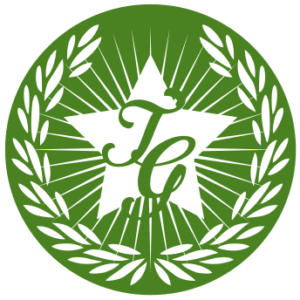I was a beech tree in a former life, which is why I am confident in asserting that this beech tree was once an elephant. I asked her if she minded being a tree, so far away from the savannahs and grasslands of her African home. She said she didn’t mind it so much, as a different kind of forest was also once her home. I am not so sure about that, because the forest spirit of Epping has mostly gone, and where it remains, it is angry, anxious, and in pain. So I wonder how much time the forest, and this tree, has left. I went to hug her trunk to show her the love I could feel she was missing. When I did so, I saw with utter clarity her life before this one on the plains. I knew then that, contrary to what she said, my suspicions were
At the beginning of 2023, I started regularly hiking / walking. I mainly did linear coastal hikes at first, but by the summer, I had done all the walks I knew and had a failure of imagination on how to find new ones. I knew about Alltrails, a database of walks, but for one reason or another, I wanted to create my own walks. However, I didn’t know how. As a Londoner without a car, I am limited to day hikes which are either circular from a national rail station or linear between two stations. I like to walk between 20-30km each time and don’t really want to spend more than 2 hours travelling to the destination point, even less in the winter months due to shorter days. A neighbour recommended a lovely book by Julia Smith called Walks for Each Season, which I highly recommend. It is very pretty in
Trouble was born in 1742 and died in 1806 by an arrow from her very own bow. She wasn’t born Trouble, you understand, that was just what she made of it after all was said and done. I know the plaque says 2004-2018 – the engraver got it wrong. That’s because they didn’t have this story to reference as they made it. I shall go back to Black Down with a sticker to correct it one of these days. Anyway, Trouble was a maiden of lowly birth, neglected by her parents and hence thoroughly resourceful from age 5. She grew into the type of woman who, had she been born in contemporary times, could make quite a successful living delivering bushcraft courses. But no one paid for things like that back then, so she just used her skills to survive as a genuinely free and liberated eighteenth century lady-lad. Trouble lived
Hugo was sad. I know he doesn’t look it as he hides it well, but he was sad. Sad from his head down to the space where his toes should be. Cindy was her name and Cindy was what Hugo called over and over: on the hour, like clockwork. In fact, forest creatures of a particular bent used his cries to mark time. ‘Let’s build this section of the nest within three Cindys’, they’d say. Or, ‘In five moons and fourteen Cindys, let’s meet on the old Silver Birch for a jamboree!’ In this way, Hugo became a part of the forest, even though he was a migrant brought in the mouth of a savage canine invader. It didn’t really console Hugo to be incorporated into the life of the forest. He didn’t want the forest, nor its inhabitants; he wanted Cindy and her warm bed near the fire. He wanted
This reportage goes out to all the lovers in the world, united and aspiring, one and all. Behold the beauty of the Rose Tree. The Rose Tree can be found in Coles Copse, near Effingham Forest, in the Surrey Hills. It has been a site of pilgrimage for the denizens of north Surrey since at least 1967. History buffs will be familiar with that year as the ‘Summer of Love’, wherein north Surrey residents undertook their own restrained and demur version of free love in solidarity with the citizens of San Francisco. Rupert and Tarquin first discovered the power of the Rose Tree. Rupert was a soppy sort with short back and sides, and despite his boarding school background and emotionless parental environment, he had managed to cultivate a soft heart and romantic dream-life. Thus, when he met Tarquin, all wild haired and unique in his stripy blazer and monkey boots,
